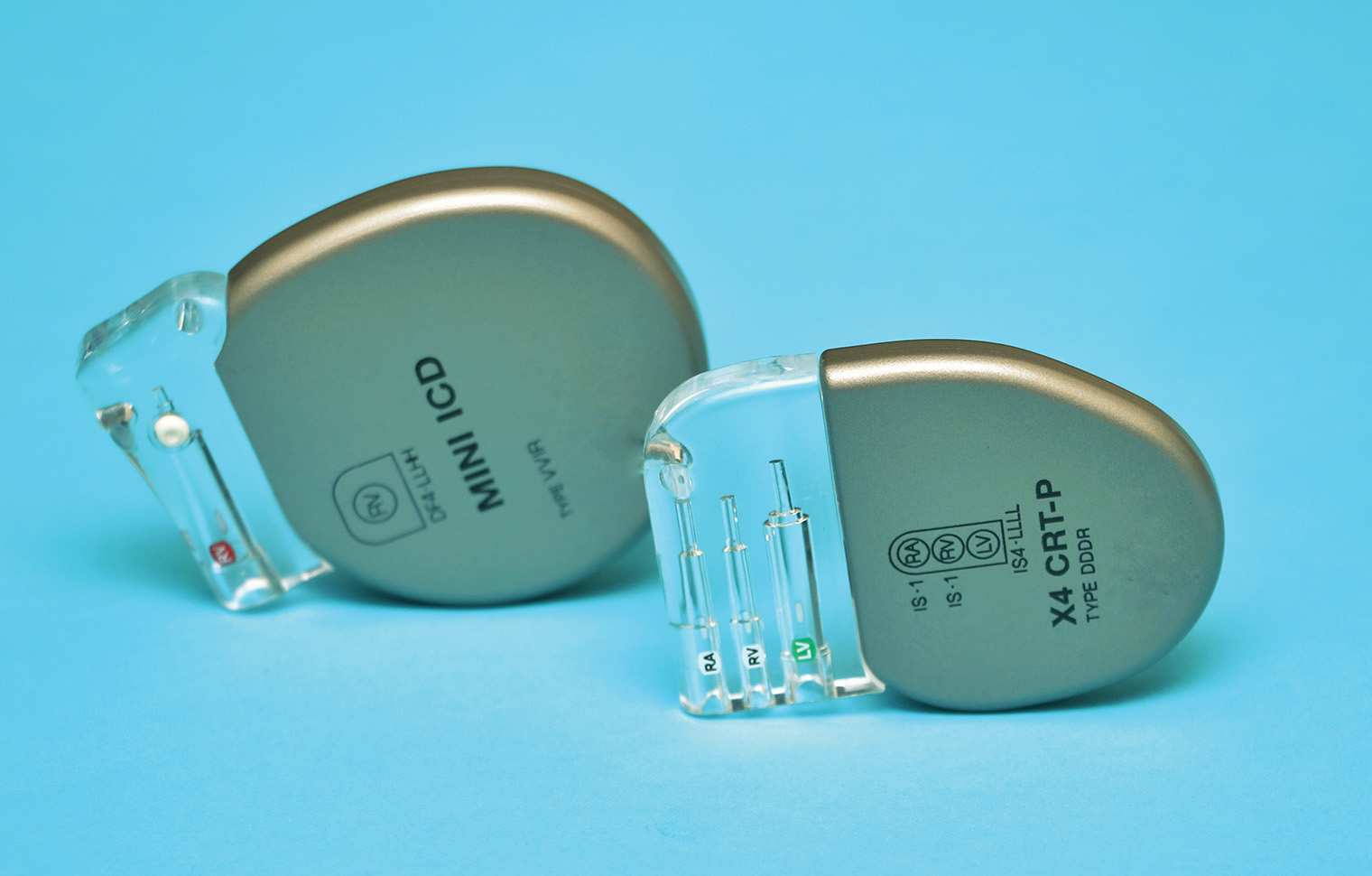 Implantable devices used in CRT.
Implantable devices used in CRT.
Cardiac resynchronization therapy (CRT) is a standard treatment for heart failure (HF), but not all patients respond to it. In patients with advanced HF, glycation (i.e., attachment of sugar particles to other molecules) of the ryanodine receptor (RyR) is known to occur in their skeletal muscle and circulating lymphocytes.
In a study published online in December 2021 in the Journal of Heart and Lung Transplantation, Gaetano Santulli, M.D., Ph.D., and colleagues investigated whether RyR glycation in circulating lymphocytes could predict HF patients’ response to CRT.
After enrolling 94 HF patients who underwent CRT and 30 more people without HF who also underwent CRT, the researchers assessed RyR glycation of lymphocytes at baseline and after one year. Baseline RyR glycation was found to independently predict CRT response at the one-year mark. In addition, RyR glycation correlated significantly with pathologic intracellular calcium leakage in HF patients. Taken together, the results show for the first time that RyR glycation in circulating lymphocytes represents a novel and reliable biomarker for predicting outcomes for HF patients following CRT.
Dr. Santulli is an associate professor of medicine and of molecular pharmacology at Einstein.